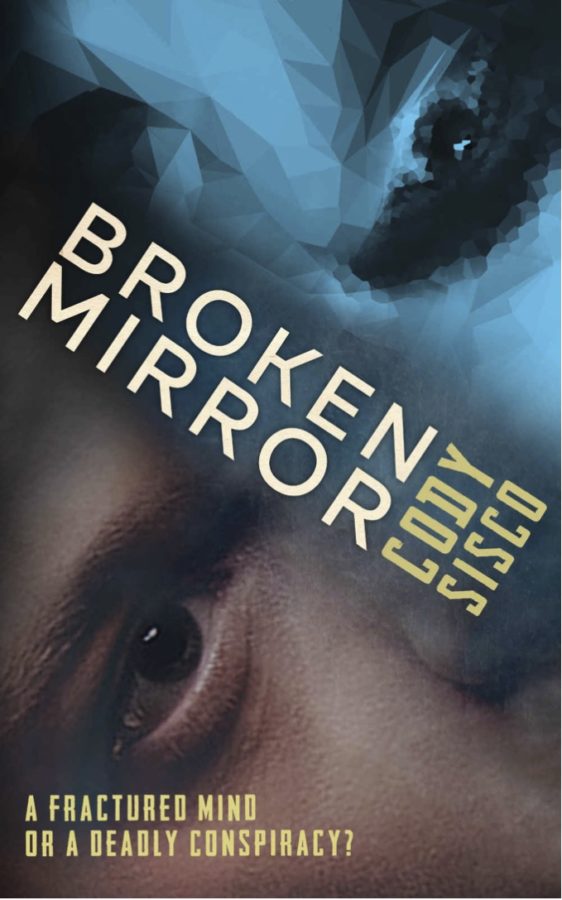Genre: Cyberpunk, Alt History
Reviewer: Lee
Get It On Amazon | Goodreads
About The Book
Broken Mirror: the start of a smart, complex, and imaginative cyberpunk alternate history saga. Literary science fiction from a fresh, young voice.
In a mirror universe, a mentally ill young man searches for his grandfather’s killer.
Someone killed Jefferson Eastmore. His grandson Victor is sure of it, but no one believes him.
Diagnosed with mirror resonance syndrome and shunned by Semiautonomous California society, Victor suffers from hyperempathy, blank outs, and sensory overload. Jefferson devoted his life to researching and curing Broken Mirrors like Victor, but now that he’s gone, Victor must walk a narrow path between sanity and reclassification—a fate that all but guarantees he’ll lose his freedom.
With its self-driving cars, global firearms ban, and a cure for cancer, the world of Broken Mirror may sound utopic, but history has taken a few wrong turns. The American Union is a weak and fractious alliance of nations in decline. Europe manipulates its citizens through propaganda. And Asia is reeling from decades of war. Amid shifting geopolitical sands, Broken Mirrors like Victor find themselves at a crossroads: evolve or go extinct.
The Review
Cody Sisco’s Victor is a highly intelligent young man who has been diagnosed with a serious mental illness called mirror resonance syndrome (MRS). This story takes place in a dystopian alternate version of the United States in which this mental illness afflicts a large fraction of the population (perhaps as high as one percent). Victor struggles with the stigma of his disease as well as the mystery of whether his grandfather—an intellectual titan and important public figure—has been murdered. Are Victor’s suspicions part of his mental illness or is he correct and there is more going on?
Sisco’s book is serious in tone and execution. This is not an escapist story, and the reader is kept as uncomfortable as its protagonist, who is met with the suspicion and distrust that the mentally ill must often grapple. The disease, MRS, cleverly follows from real world theories of empathy. Some psychologists believe that emotional empathy involves the simulation or mirroring of observed behavior from one animal to another. There is a biological connection to this theory in something called a mirror neuron. MRS in Broken Mirror is a disorder of the mirror neurons resulting in a variety of mental issues including paranoia, hypersensitivity, and in a famous case within the book, a murderous rampage. One conundrum for Victor and the reader is, if MRS makes it “Difficult to tell fact from fiction,” then how do we know if Victor is a reliable narrator?
There are few appealing characters in this story, as most of the people that Victor encounters are antagonistic. Even his allies have a difficult—often sour—relationship with him. I found it jarring that Victor’s family was so unsympathetic to his suspicions of the murder of his grandfather. Their reaction at first seemed out of keeping to me and I wondered if Sisco had written the family too bluntly. Further examination made me consider that perhaps Sisco was showing us the hell of mental illness: one’s life is a succession of having reasonable concerns dismissed, of being gaslighted, marginalized and solely defined by the disease. This may be good writing but does not always make for comfortable reading.
Some of the Sisco’s other expository choices made me wonder. Victor has vivid, dramatic dreams which we understand may have special meaning, but we are not treated to very intriguing glimpses of them until well into the book. These dreams are part of the contentious nature of Victor’s diagnosed illness and failing to highlight them to the reader felt like a lost opportunity to both illuminate the situation Victor faces and build stakes relative to their possible meaning. This (possible) criticism does go back to the question of whether the author has purposefully kept the reader from sympathizing with Victor and the other characters in the story as part of his objective of highlighting the stigma of mental illness. It would be a good question for Sisco, one of many that this interesting book generates.
Broken Mirror has much to say. It effectively considers the stigma of mental illness and the hellish distrust and alienation that goes with it. Sisco also shows the destructive use of availability cascades to rationalize draconian action against overblown or misrepresented threats. Like all good science fiction, Broken Mirror holds a mirror up to our world.
Takeaway: This book is for those who like intellectual science fiction, mysteries, and are curious about neuroscience, social cognition, and empathy. Fans of Neal Stephenson and Michael Crichton may enjoy this work.
The Reviewer
Lee has a background in physics and applied science, but has always enjoyed reading fiction. His first serious forays in writing came from dungeon mastering and high school drama club, although for nearly three decades as a geophysicist, he wrote only non-fiction. At the age of 25, Lee spent a prolonged period of time on the edge of death, had the last rights read to him, and enjoyed several near death experiences. Not even all the morphine could make him forget those. Lee enjoys rock climbing, cycling, hiking, swimming and writing. He is an Ironman Triathlete.


